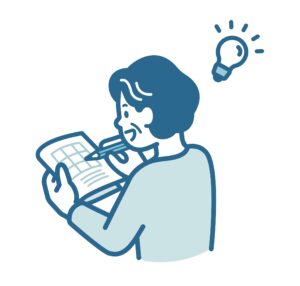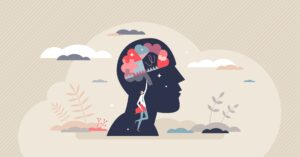
Get the Best Sleep of Your Life: Tips and Strategies for Waking Up Refreshed
Why am I tired when I wake up in the morning?
Are you tired of falling asleep and waking up feeling groggy and lethargic? Do you struggle to fall asleep at night and then have trouble getting out of bed when you wake up in the morning? Do you struggle with daytime sleepiness and a sleep debt that you can never pay back? If so, you’re not alone.
Many people experience sleep problems or simply don’t know how to wake up feeling awake and energized. Every kind of sleep specialist and many sleep doctors have a booming trade because, around the world, sleep apnea, sleep fragmentation, and downright insomnia are rife. Good-quality sleep is sometimes hard to come by. Sleep medicine of every kind simply flies off the shelves.
For all the night owls in the world wondering how to get to bed early, how to get out of bed at a wake-up time without having to bash that snooze button, this is for you.
So if you have a sleep disorder, suffer from excessive daytime sleepiness, or just feel the need for a regular sleep routine, read on.
What we will Talk About
In this post, we’ll discuss some practical tips and strategies for improving your sleep quality. Also, creating a wake-up routine that sets you up for a productive and fulfilling day. Whether you’re a night owl or a morning person, there are things you can do to optimize your body’s circadian rhythm and promote better sleep hygiene.
We’ll cover topics such as the importance of consistent sleep schedules, the role of natural light and darkness in regulating your body clock. We’ll cover the benefits of gentle exercise in the morning, and the use of guided meditation and sleep apps to promote relaxation and restful sleep habits.
By the end of this post, you’ll have a better understanding of how to wake up feeling refreshed and how to stop hating your alarm clock.

What happens if you don’t sleep enough?
When it comes to getting enough sleep, the amount of time required varies from person to person. Generally speaking, adults need seven or more hours of quality sleep each night for optimal health and wellbeing.
Daytime sleepiness is just the start of the problem; being sleep deprived can lead to a variety of physical and mental health issues. This can include cognitive impairment, fatigue, anxiety, depression, and weakened immunity.
Poor sleep can also contribute to accidents and injuries due to decreased alertness and concentration levels throughout the day. Therefore, it is important that we prioritize our sleep needs in order to avoid the long-term health consequences of sleep deprivation.
Additionally, people who consistently get less than 7-8 hours of nightly rest are more likely to experience obesity, heart disease, and stroke.
Sleep Debt
If you don’t get good sleep, you end up with sleep debt. Unlike a financial debt, a sleep debt is virtually impossible to repay. You cannot “catch up.” You also get a lot of built-up sleep debt if you are experiencing sleep fragmentation and wake up various times during the night.
Remember that hitting snooze is no solution at all. You merely disrupt your biological clock even further and throw a spanner in your sleep health.

The Science Behind Waking Up Like a Morning Person
In order to understand how to wake up, it’s important to first understand the science behind sleep and wakefulness. One of the key concepts to grasp is the idea of the circadian rhythm, or the body’s internal clock.
This internal clock is what helps regulate our sleep and wake cycles; and it’s largely influenced by factors such as light and darkness.
The body clock, or circadian rhythm, affects everything from our sleep habits and hormone levels to our metabolism.
When our bodies are in sync with our natural circadian rhythm, we’re more likely to wake up easily and drop off without a problem.
The Sleep Cycle
Understanding the sleep cycle is also important for waking up feeling refreshed. Sleep is divided into four stages, with the deepest stage being the most restorative for the body.
During each stage, different things happen in the body and brain, including changes in heart rate, breathing, and muscle activity.
Melatonin is another key factor in sleep, as it’s the hormone that helps regulate our sleep-wake cycle. Our bodies naturally produce more melatonin as it gets darker outside, which is why it’s important to create a dark and quiet sleep environment to promote optimal melatonin production.
Tips to fall asleep and stay asleep
Getting a good night’s sleep is crucial for waking up energized. One way to achieve this is by practicing good sleep hygiene, which involves creating a sleep-conducive environment, sleep schedule and avoiding activities that interfere with sleep.
Let’s take a look at how to keep our internal body clock in top shape.
The Ten Laws of a Good Night’s Sleep

Establishing a relaxing bedtime routine
This seems like a simple task, but it can have a major impact on your overall quality of sleep. It is important to create a routine that helps your mind and body unwind and prepare for rest.
Healthy habits should include a regular time to go to bed and regular wake-up times. Forget the snooze button. You must establish a good sleep schedule and be strict. You will get enough sleep only when you have sorted this out.
Make your bedroom comfortable.
One way to ensure that you get the sleep you need is by making your bedroom as comfortable as possible.
An optimal sleep environment is cool, dark, and quiet. You might consider investing in blackout curtains, earplugs, and a fan or air conditioning unit. Your bed and bedding should also be comfortable. Look for a mattress and pillows that support your body and sheets that are soft and cozy.
Finally, it’s important to keep your bedroom clutter-free and clean to create a peaceful environment. By taking these steps to create a comfortable sleep space, you can improve the quality and duration of your rest.
Limit exposure to electronics before bed:
In today’s digital age, it’s hard to imagine going even a few hours without being connected to our electronic devices. However, when it comes to getting enough sleep, it’s essential to limit our exposure to electronics before bed.
This is because the blue light emitted by devices such as smartphones, tablets, and laptops can interfere with our natural sleep cycle. Conversely, a light up alarm clock will blast you with blue light precesely for this reason.
To ensure a restful night’s sleep, try to avoid using electronics in the hour leading up to bedtime. Instead, consider reading a book, taking a relaxing bath, or simply practicing some calming breathing exercises. Stay well away from any bright light.

Avoid caffeine, nicotine, and alcohol.
Caffeine, nicotine, and alcohol are known to interfere with sleep. , They cause restlessness and reduce the amount of deep sleep we get. To avoid these uncomfortable effects, it’s best to avoid these substances, especially in the hours leading up to bedtime.
Instead, turn off the coffee maker and opt for decaffeinated drinks or herbal teas that are known to promote relaxation, like chamomile or lavender.
By making some simple changes, you’ll be able to enjoy a restful, rejuvenating sleep and wake up feeling energized and ready to tackle the day ahead.
Exercise regularly:
Exercise and sleep are closely related, but it’s important to approach exercise with the right mindset. Engaging in regular exercise can promote better sleep by releasing endorphins that help lower stress, anxiety, and depression, all of which can cause sleep disturbances.
However, vigorous exercise close to bedtime can actually have the opposite effect and make it harder to fall asleep. This is because exercise raises your heart rate and body temperature, which can keep you alert and make it more difficult to wind down.
Therefore, it’s important to schedule exercise earlier in the day and leave enough time to cool down and relax before bedtime.
By taking the right approach, exercise can be a valuable tool in improving your overall sleep quality. If you want to exercise right before bed, choose very soft, calming exercises such as CogniFit Movements.
Don’t eat heavy meals before bedtime:
Eating a heavy meal too close to bedtime can disrupt your body’s natural sleep cycle, causing you to feel less rested and alert in the morning.
To avoid these problems, it’s important to try and eat dinner at least a few hours before you plan to go to sleep. This will give your body sufficient time to digest the food and enter into a more peaceful, restful state.
By making a few simple changes to your eating habits, you can help promote better sleep and wake up feeling more refreshed each morning.
Manage stress:
Stress and anxiety can make getting a good night’s sleep seem almost impossible. The incessant chatter in your mind can cause a sleep disorder and play havoc with your sleep patterns.
One effective way to help manage these feelings and get your mind to calm down is through deep breathing, meditation, or yoga as part of your nightly routine.
These relaxation techniques can help reduce the effects of stress and anxiety by calming your mind and body.
Deep breathing exercises can help slow down your breathing rate, slow your heart rate, lower your blood pressure, and reduce the amount of stress hormones in your body.
So, if you are struggling with sleep disruption, try incorporating relaxation techniques into your daily routine, and you may find yourself sleeping soundly in no time. The right app will help greatly. For some great relaxation techniques and guided meditations, give the MindFit app a try.

Keep your sleeping environment quiet and comfortable.
When it comes to creating the perfect sleeping environment, one of the most important factors to consider is the temperature of your bedroom.
The optimal temperature for good sleep quality is typically between 60 and 67 degrees Fahrenheit. This may sound chilly, but studies have shown that cooler temperatures are more conducive to sleep than warmer ones. Your core body temperature lowers a little when you sleep.
Of course, everyone’s preferences are slightly different, so you may want to experiment a bit to find the temperature that works best for you. One helpful tip is to layer your bedding so that you can easily adjust the level of warmth as needed.
Regardless of your preferred temperature, it’s important to keep your room quiet and free from distractions to ensure a restful night’s sleep.
Take a melatonin supplement:
Melatonin is a natural sleep hormone and can be helpful in restoring a healthy sleep pattern. It’s important to take melatonin about 30 minutes before bedtime to give your body enough time to metabolize it.
However, it’s important to speak with a healthcare provider before starting a supplement, especially if you have any health conditions or are taking medication, as it can interact with certain drugs.
With proper use and guidance, melatonin can be a safe and effective way to overcome a sleep disorder

Use your bed only for sleep and sex:
One of the best ways to promote healthy sleep is by using your bed only for sleep and sex. Avoiding activities like work or watching TV in bed can help train your brain to associate your bed with sleep.
When you restrict your bed usage to only sleep and intimacy, your brain starts to recognize the bed as a place for relaxation and rest, making it easier to fall asleep and stay asleep throughout the night.
The Perfect Morning Routine
Breakfast.
A nutritious breakfast when you wake up, will provide your body with the necessary fuel to jumpstart your metabolism and help maintain your blood sugar levels among other health benefits. Forget the snooze button and head down to the kitchen.
Looking at the Bright Side
Getting natural light exposure will help regulate your circadian rhythms, leading to more restful sleep at night and a boost in alertness during the day.
For a good bright light, you can buy lamps for this purpose but nothing beats natural sunlight. Bright light will put an end to the melatonin and act as a natural alarm clock. The bright light will help you overcome sleep inertia.

Chilling in the Shower
A cold shower can have multiple benefits, including reducing inflammation, invigorating the body, and boosting the immune system. Even if only for a few moments, the cold water will invigorate and awaken you.
If the shower is strong, warm water will do the job. If you are up for it, though, cold water will give you the wake up you want.
Exercise
Add some gentle exercise right after you wake up. It can help increase blood flow, release endorphins, and promote mental clarity and even disease control. Implementing these habits into your routine can lead to a refreshed and invigorated start to your day.
How to Wake up with Exercise
In addition to establishing a consistent sleep schedule and bedtime routine, there are other things you can do to wake up without hitting snooze a hundred times.
One of them is incorporating gentle exercises into your morning routine, such as CogniFit Movement. Similar in many ways to Qigong, Tai Chi, and standing Pilates, the exercises won’t make you break a sweat. They will blast through sleep inertia and wake you up naturally.
Exercise beats Sleep Inertia
This is just what to need to overcome sleep inertia – that bleary feeling of not quite being awake. Gentle, coordinated physical exercise stimulates specific parts of the brain, increases blood flow, warms you up, improves your mood, and primes your brain for action.
Regular exercise will create an expectation within you to get up and move upon awakening. If you start to like it, you won’t be tempted to hit snooze.
It’s Not About Fitness
What sets CogniFit Movement apart is that it doesn’t require any special level of fitness at all. This means that all of us can benefit, not just the athletically inclined. By focusing on the cerebellum, the section of the brain with the most neural connections, this approach helps to improve coordination, balance, memory, decision-making, self-control, and more.
Using CogniFit Movements for Sleep
Incorporating CogniFit Movements into your morning routine can also help with physical control. It can help train the willpower to overcome sleep inertia. By training the essential structures and mechanics that will serve you well all your life, you can iron out ingrained bad habits of posture. This includes gait, and breathing, as well as help prevent injuries caused by falls, clumsiness, and muscle strains.
To get started, check out this session.
Conclusion
These are some tips that have been proven to work to lose that excessive daytime sleepiness. So, don’t wait any longer – make the changes today, get more sleep and start feeling more rested tomorrow!













